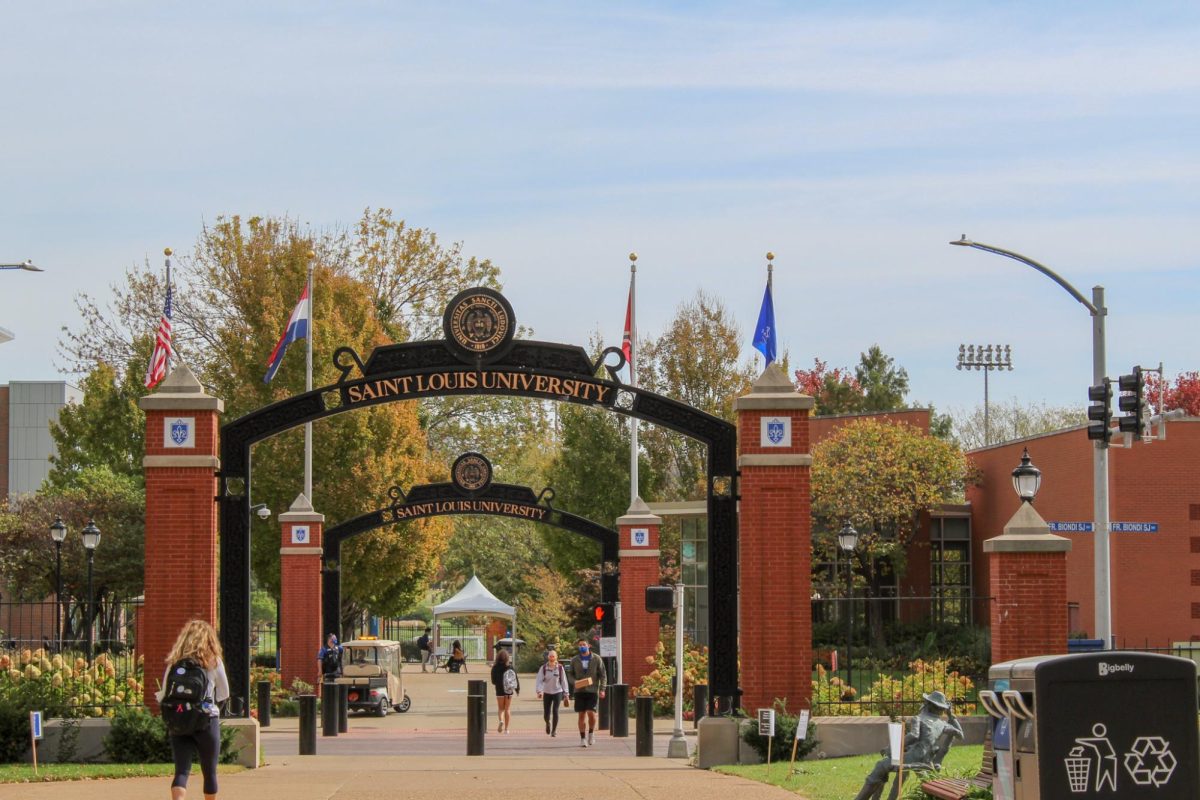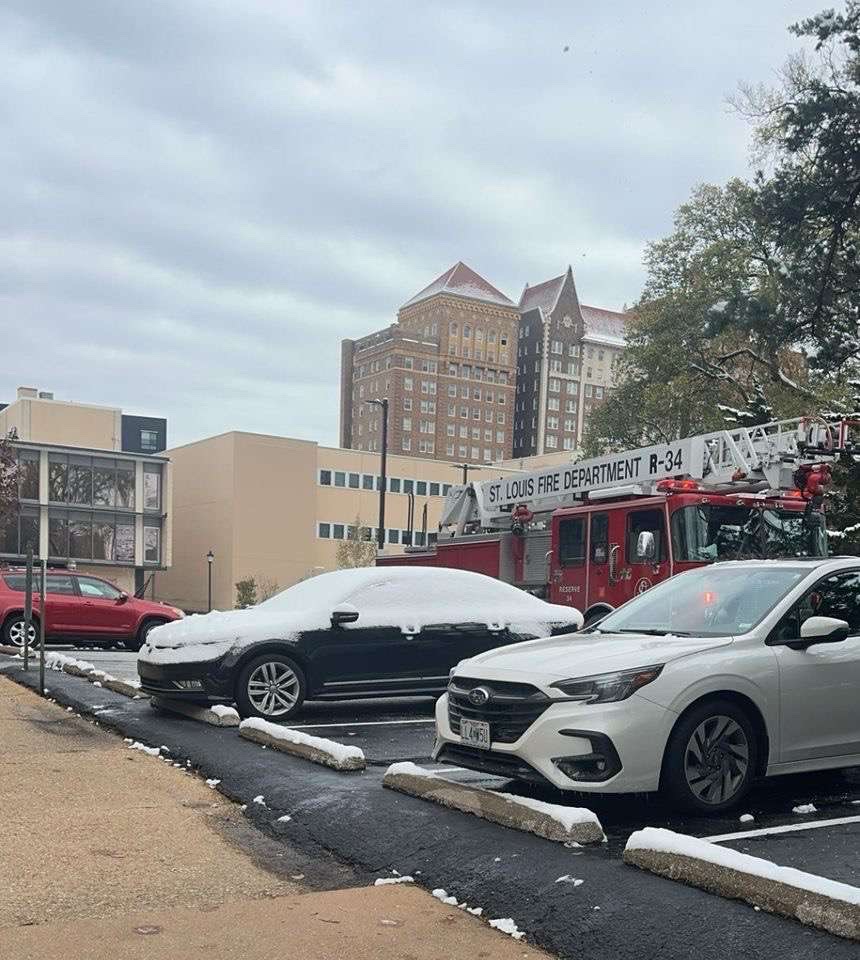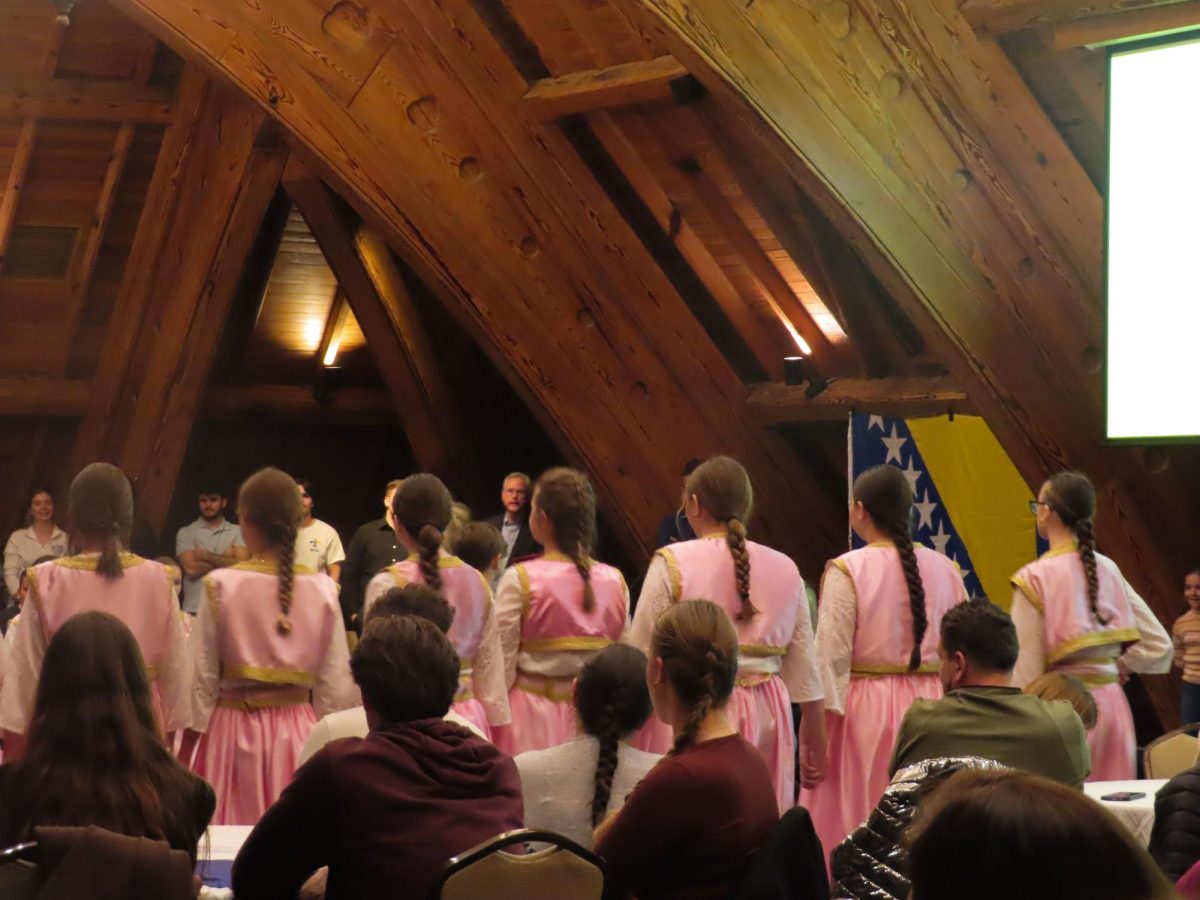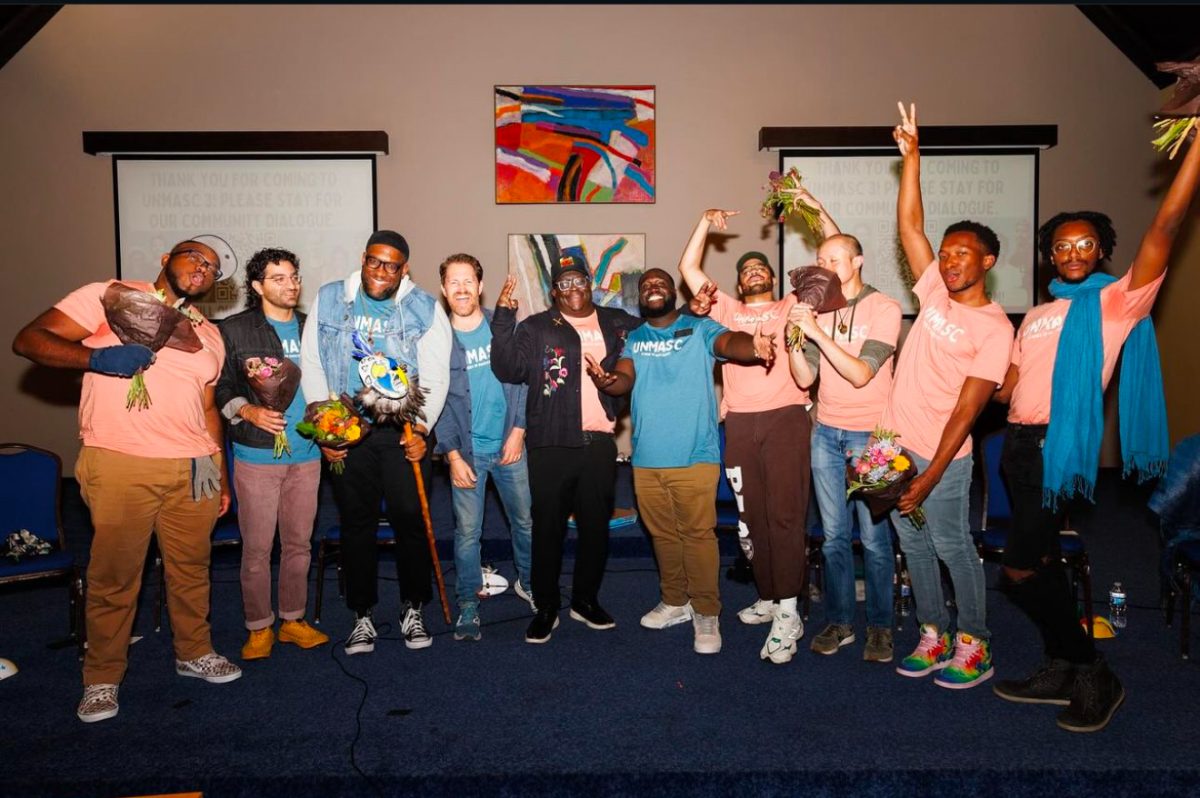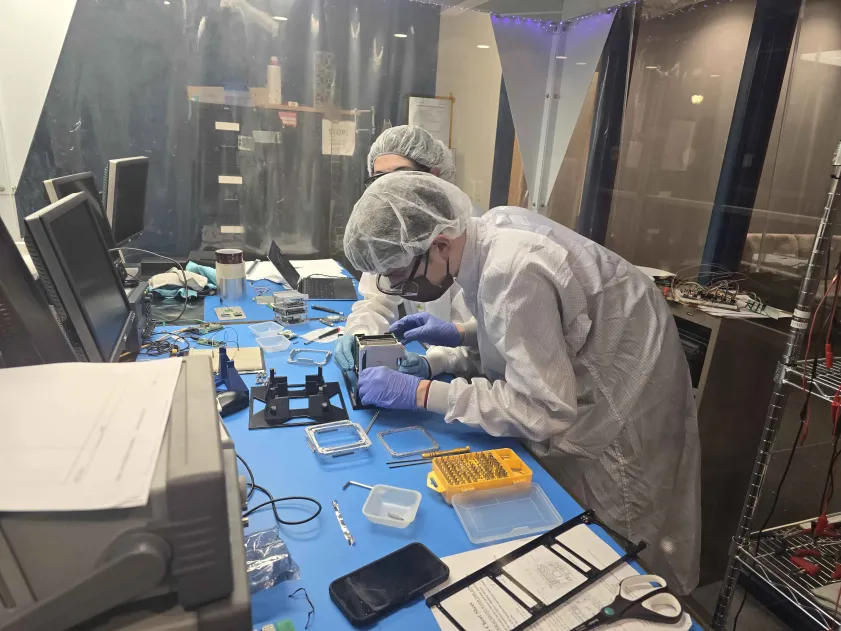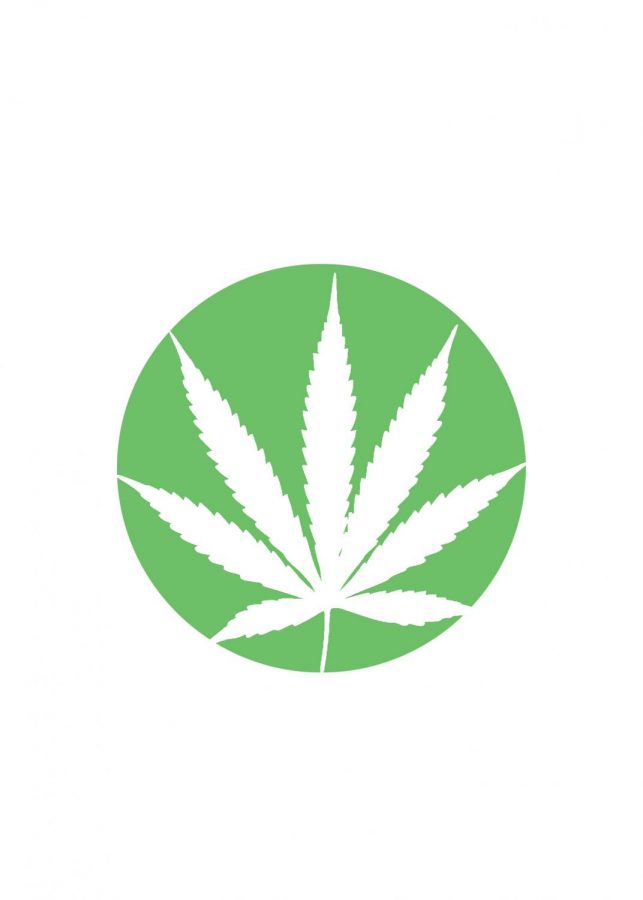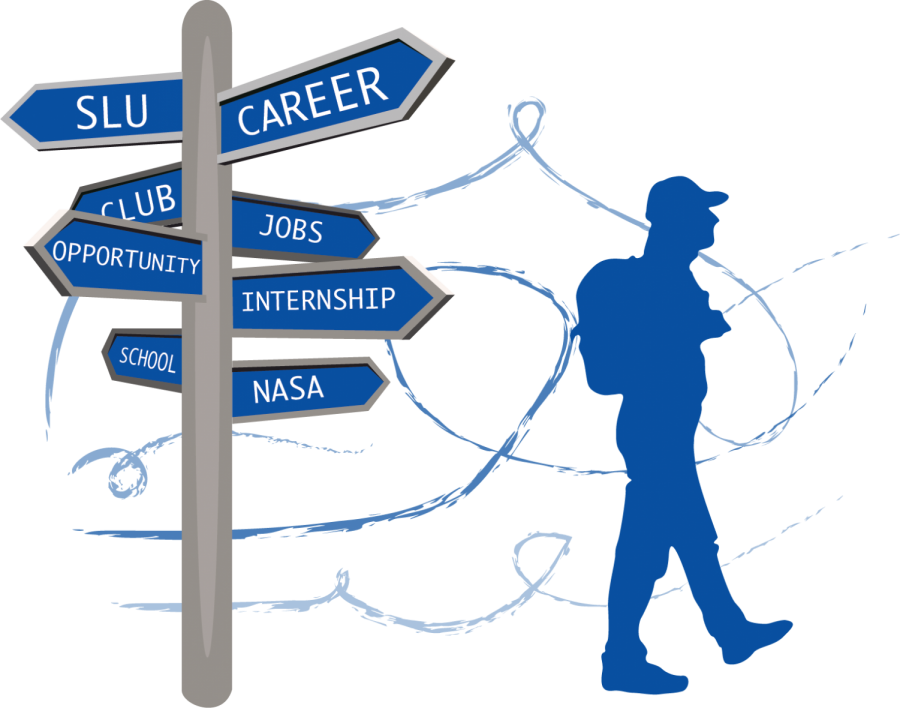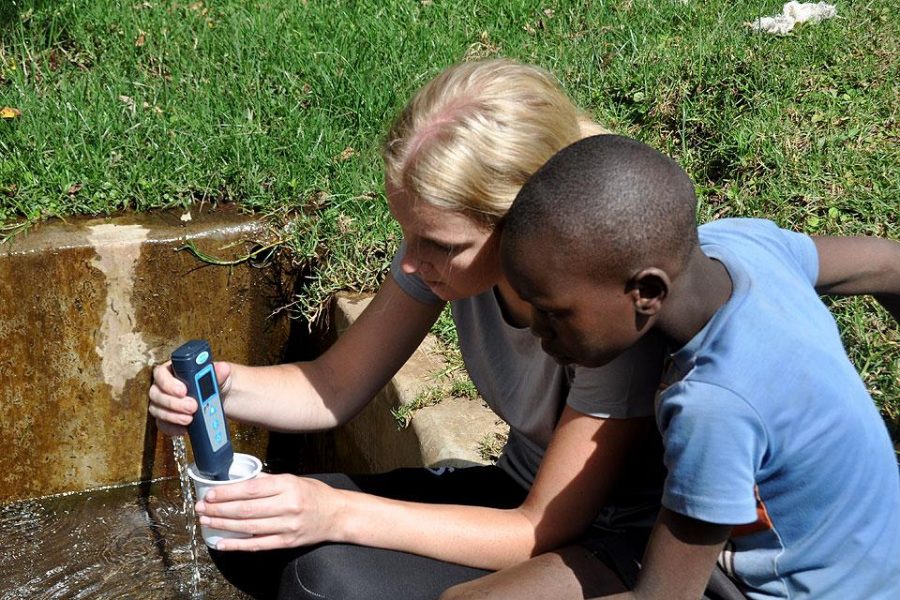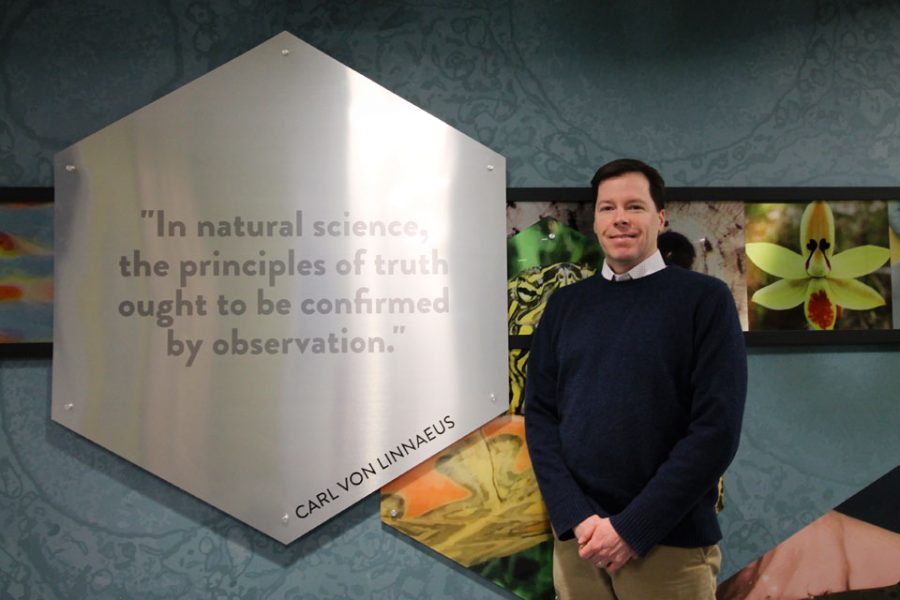With the fast pace of college life, students often struggle to balance wellness and convenience. Saint Louis University has worked to tip this balance recently by giving students a more defined choice when finding drinking water on campus.
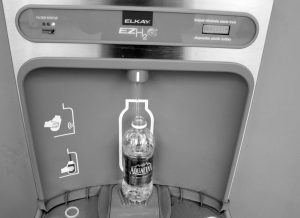
At the beginning of the spring semester, Facilities Management installed a bottled water filling station on the second floor of the Busch Student Center to promote the usage of reusable bottled water. The University is currently working on adding additional bottled water filling stations on campus to provide an alternative to purchasing plastic bottled water.
“We want to promote more reusable bottled water usage so we are working to slowly integrate it on campus,” Project Analyst for Service Operations Brandon Verhoff said. “This is about waist diversion and we want to recognize the fact that more students want to use reusable water bottles.”
These bottled water filling stations make filling a reusable bottle quicker and more convenient. Colleges and Universities around the nation have begun banning the sale of plastic bottled water in support of these reusable bottle options. Washington University in St. Louis has banned the sale of plastic bottle water all together from their vending machines and dinning facilities in February 2009. This was Washington University’s response to concerns about the environmental impacts of plastic bottled water and to encourage the use of tap water and reusable water bottles.
“National statistics show that the rate plastic bottles are recycled is low and getting lower, as more end up in landfills,” Assistant Vice Chancellor for Sustainability at Washington University Matt Malten said at the time of the ban. “Members of the Washington University community all have access to healthy water from a tap, and drinking tap water eliminates the generation of solid waste and energy usage to produce and distribute bottled water.”
Civic Affairs Committee Chair for the Student Government Association Elizabeth Alberty said she supports a ban of plastic bottled water on SLU’s campus, but wants to ensure it is implemented effectively.
“We looked at Wash U’s model and we felt that they didn’t properly lead up to their ban. We feel it is important for SLU to properly promote and put in place alternatives,” Alberty said.
SLU’s administration has expressed concern with implementing a ban of plastic bottled water due to the limited number of filling stations on campus and their 10-year agreement with Pepsi that was signed in January 2011. Pepsi’s Aquafina is the main bottled water sold on campus accounting for approximately one third of their total sales of bottled products according to Alberty.
“We want to promote more reusable bottled water usage on campus, but we want to be prepared for providing an alternative on campus,” Verhoff said. “It is tricky to do a bottle water ban because we might also eliminate the health options in vending machines and campus dinning facilities.”
According to the Education Database Online, Americans consume 8.6 billion gallons of bottled water annually and only 1 and 5 water bottles are recycled.
“It’s simple, most bottled water is not recycled and this causes many environmental problems,” Sustainability Graduate Student Maurice Muia said. “It is important to teach people that what they hold in their hand has to go somewhere after they are done with it and most often it goes in a landfill.”
Muia said that he believes that students will buy into using reusable bottles if the filling stations are strategically placed on campus to make it convenient to fill up between activities.
“The more we can do to conserve resources, the more we can spread our resources,” Muia said.
SLU recently participated in Recyclemania, a nationwide inter-collegiate competition to find the school that recycles the most per capita, to support recycling efforts on campus. SGA received 70 donated reusable water bottles from SLU as an incentive to get students to sign a recycling pledge.
According to Alberty, more than 300 students signed the pledge and a drawing will be held to distribute the bottles.
“Right now, we are focusing on the small things to make people excited for the filling stations and to recycle,” Alberty said.
“If every person buys 10 less bottled waters a semester, that is a big number and it makes a big difference. Every little thing counts and everything you can reduce is important.”



